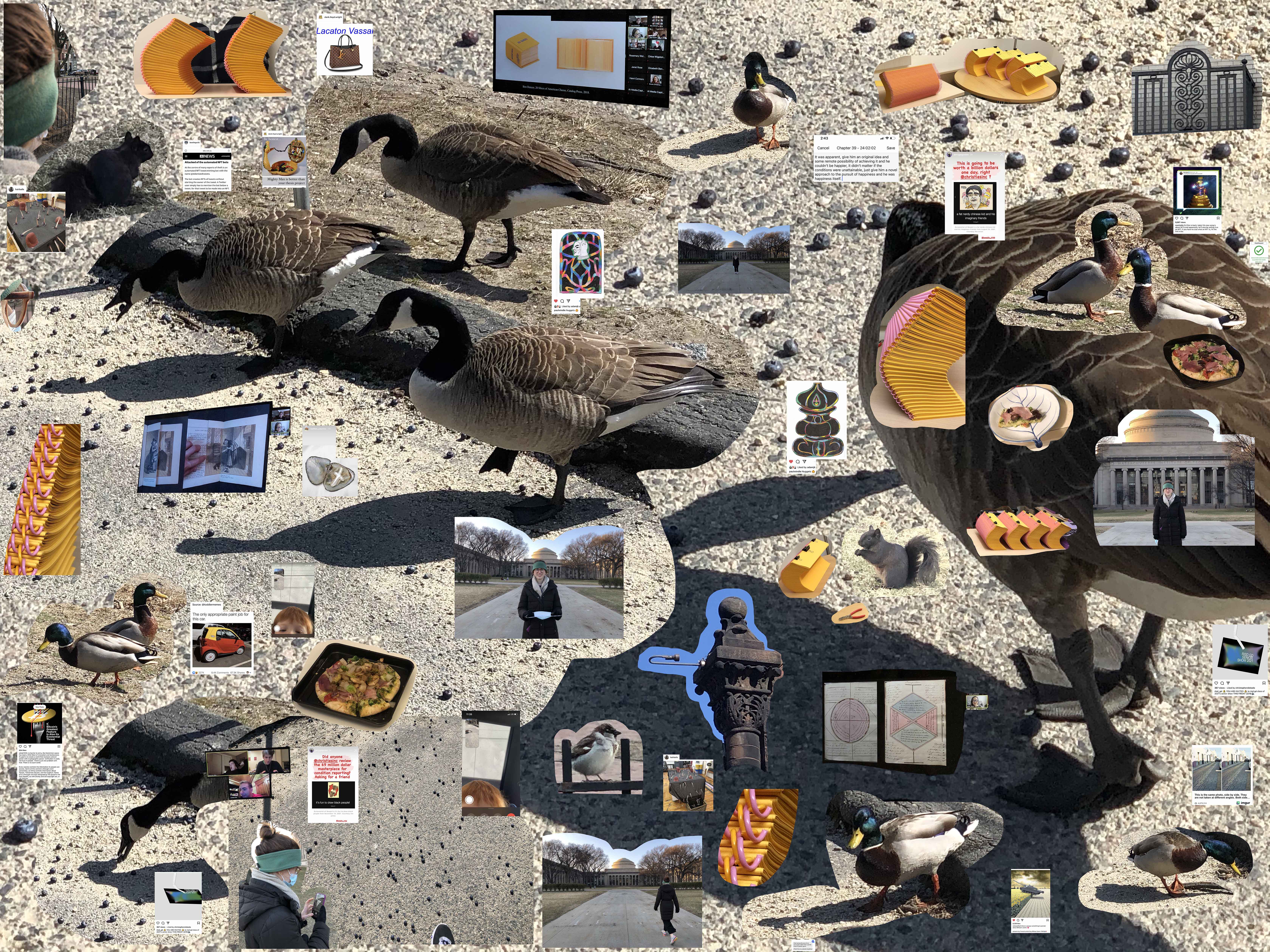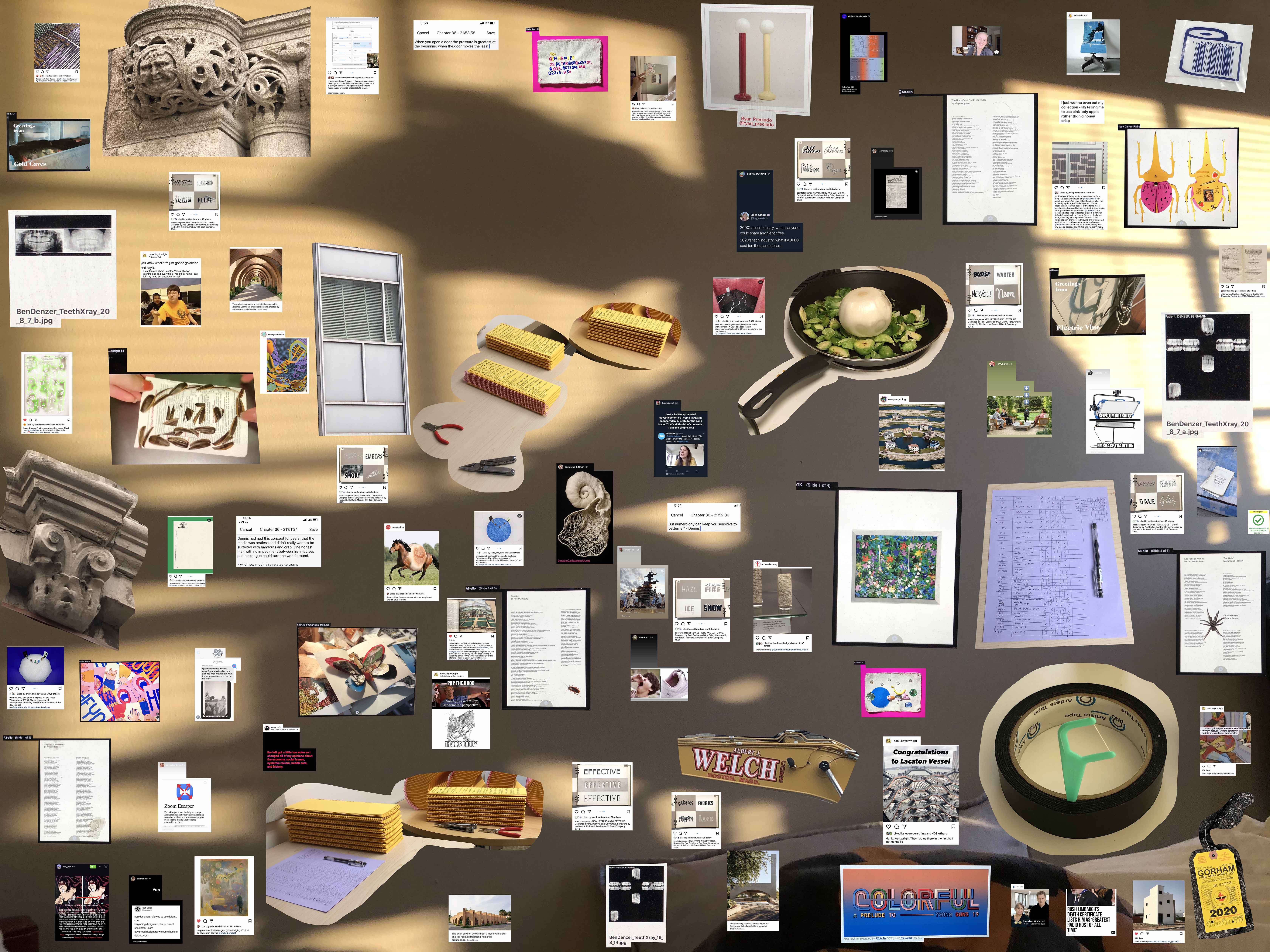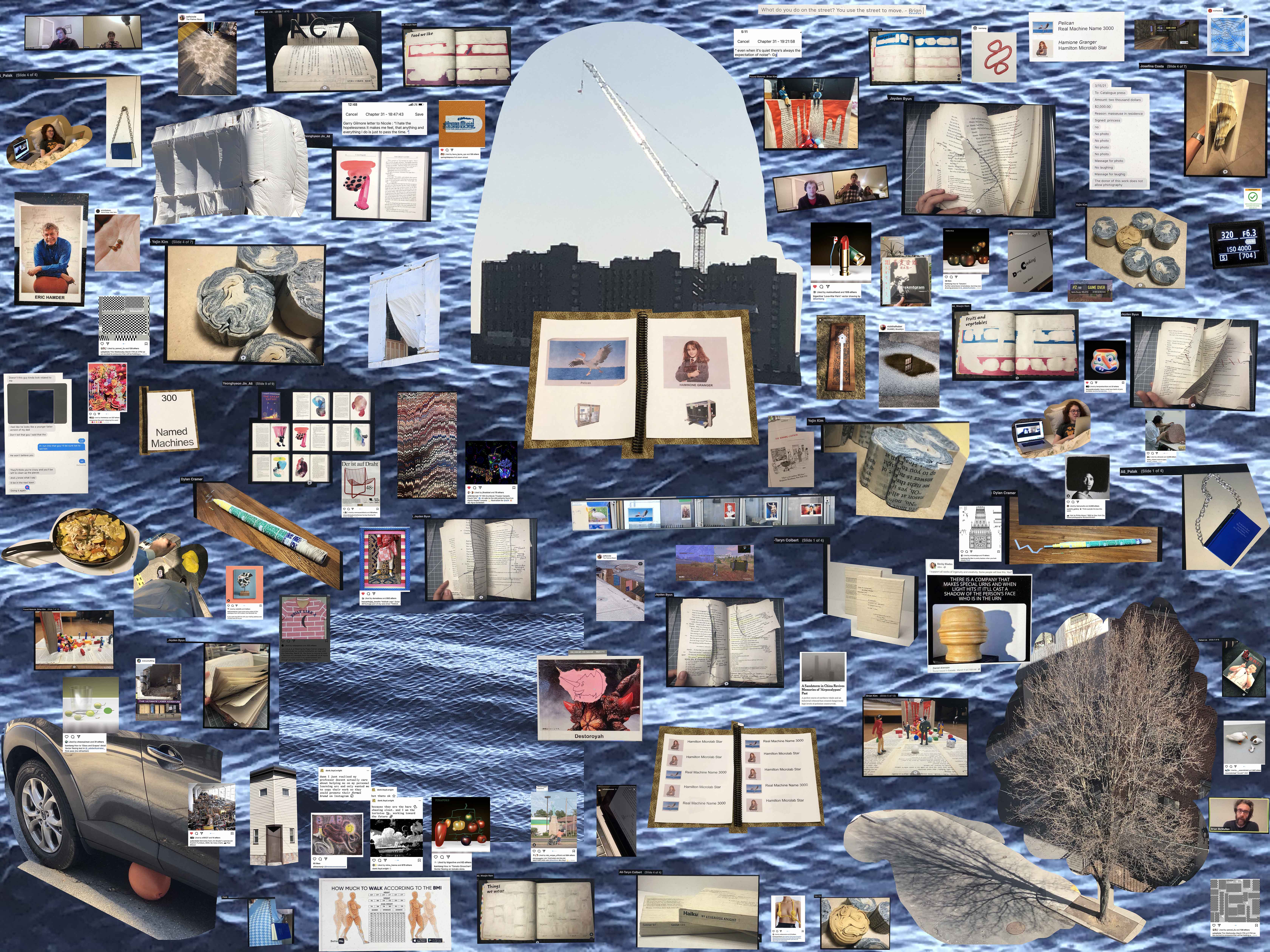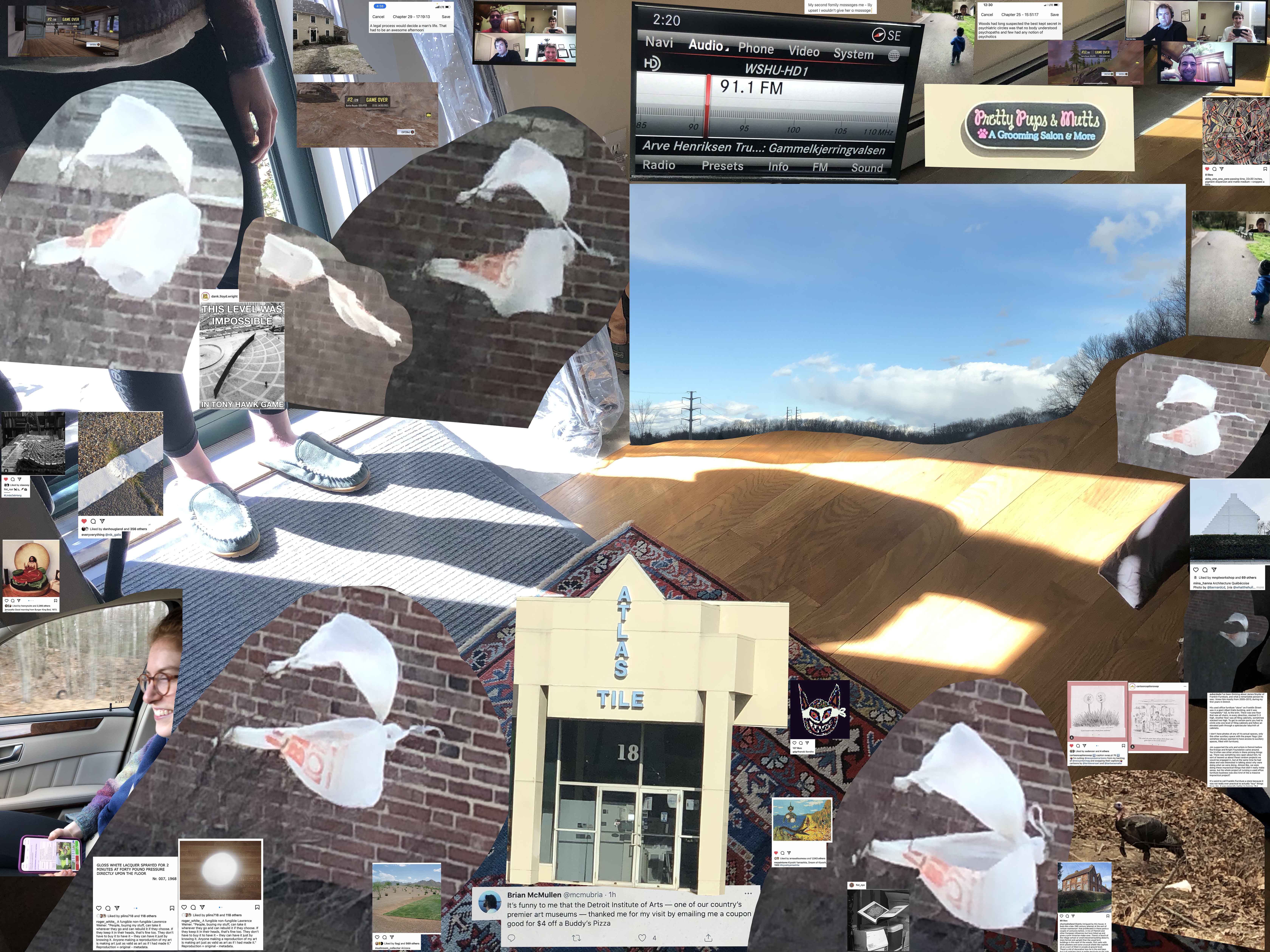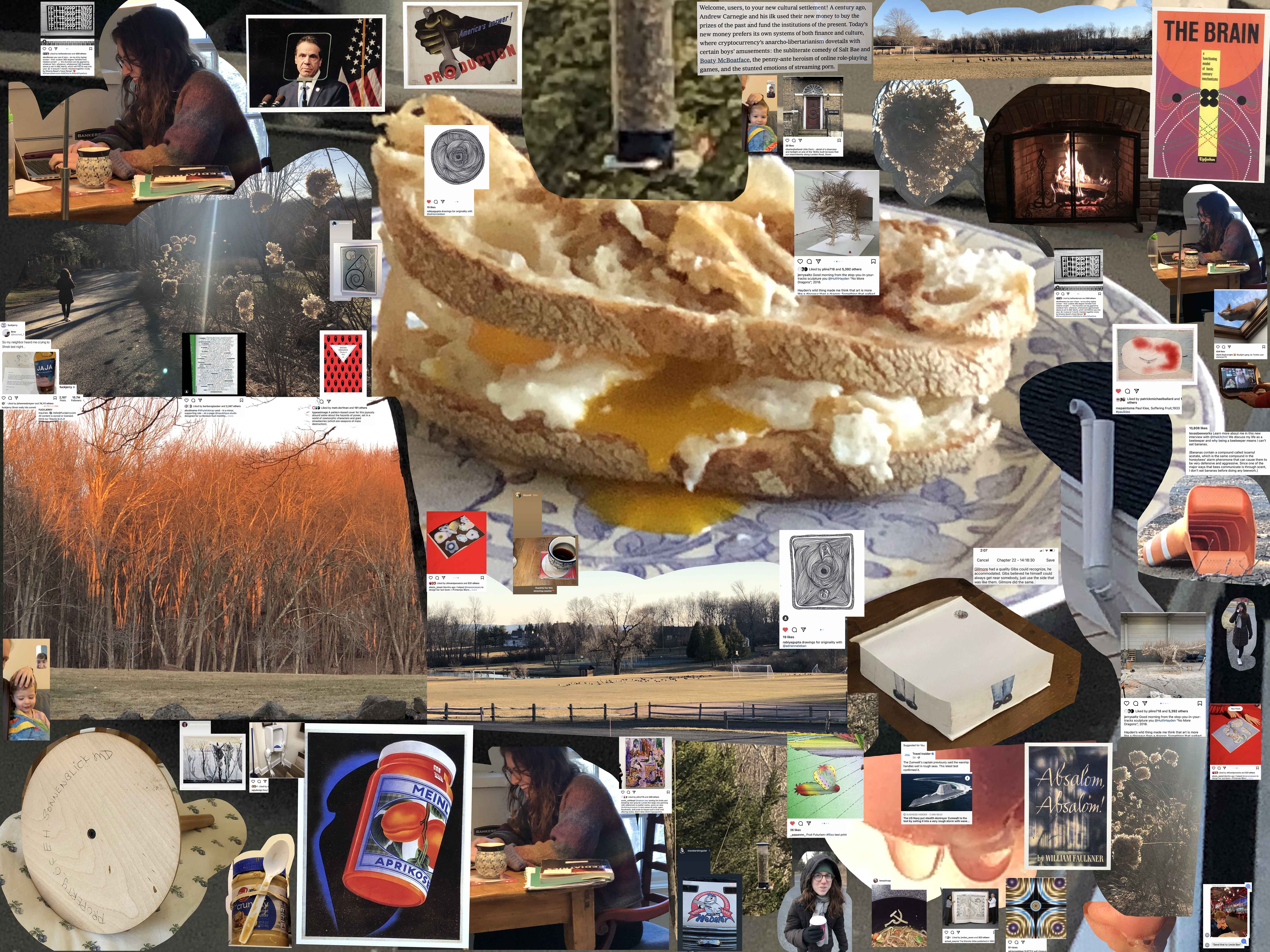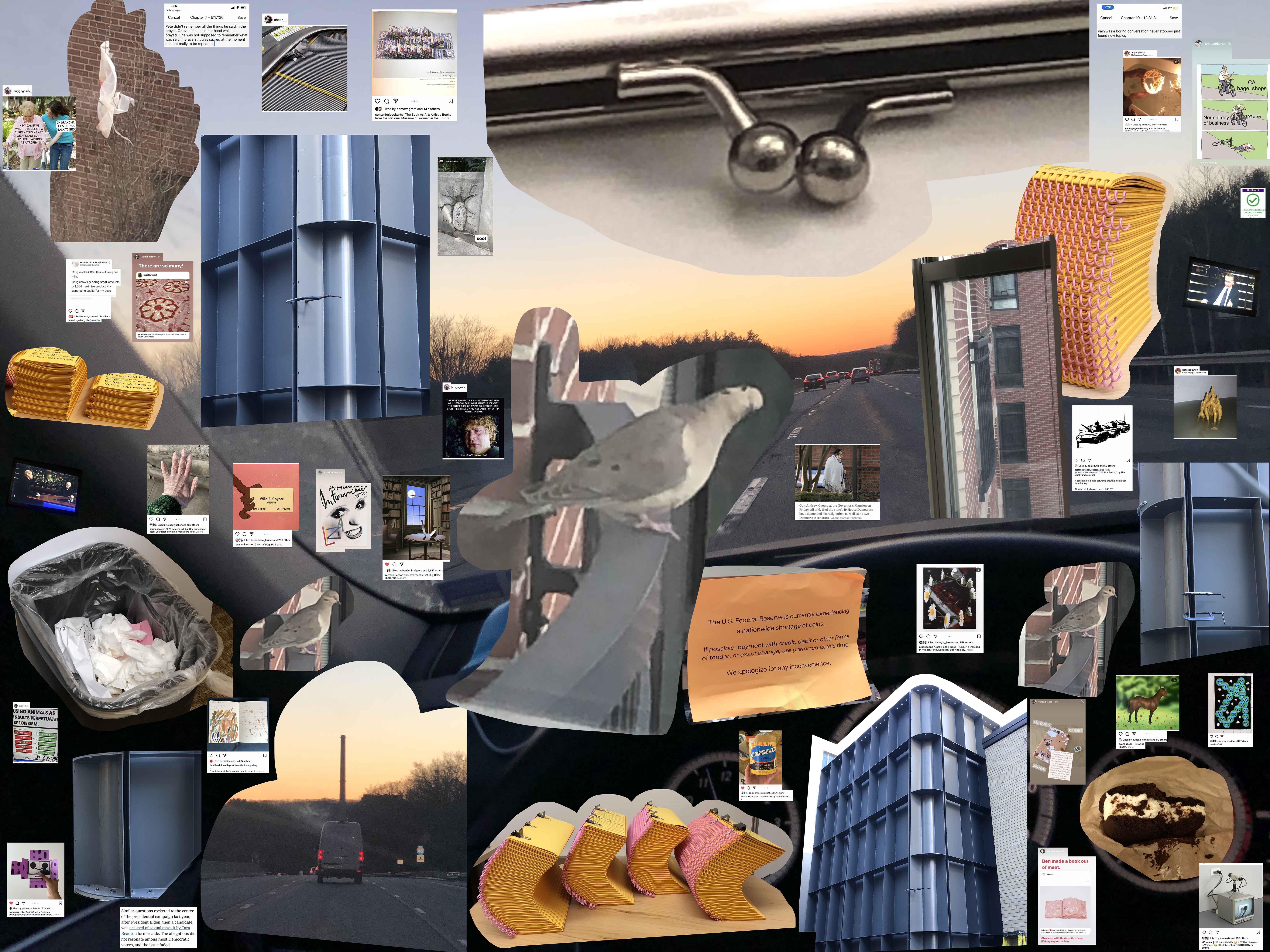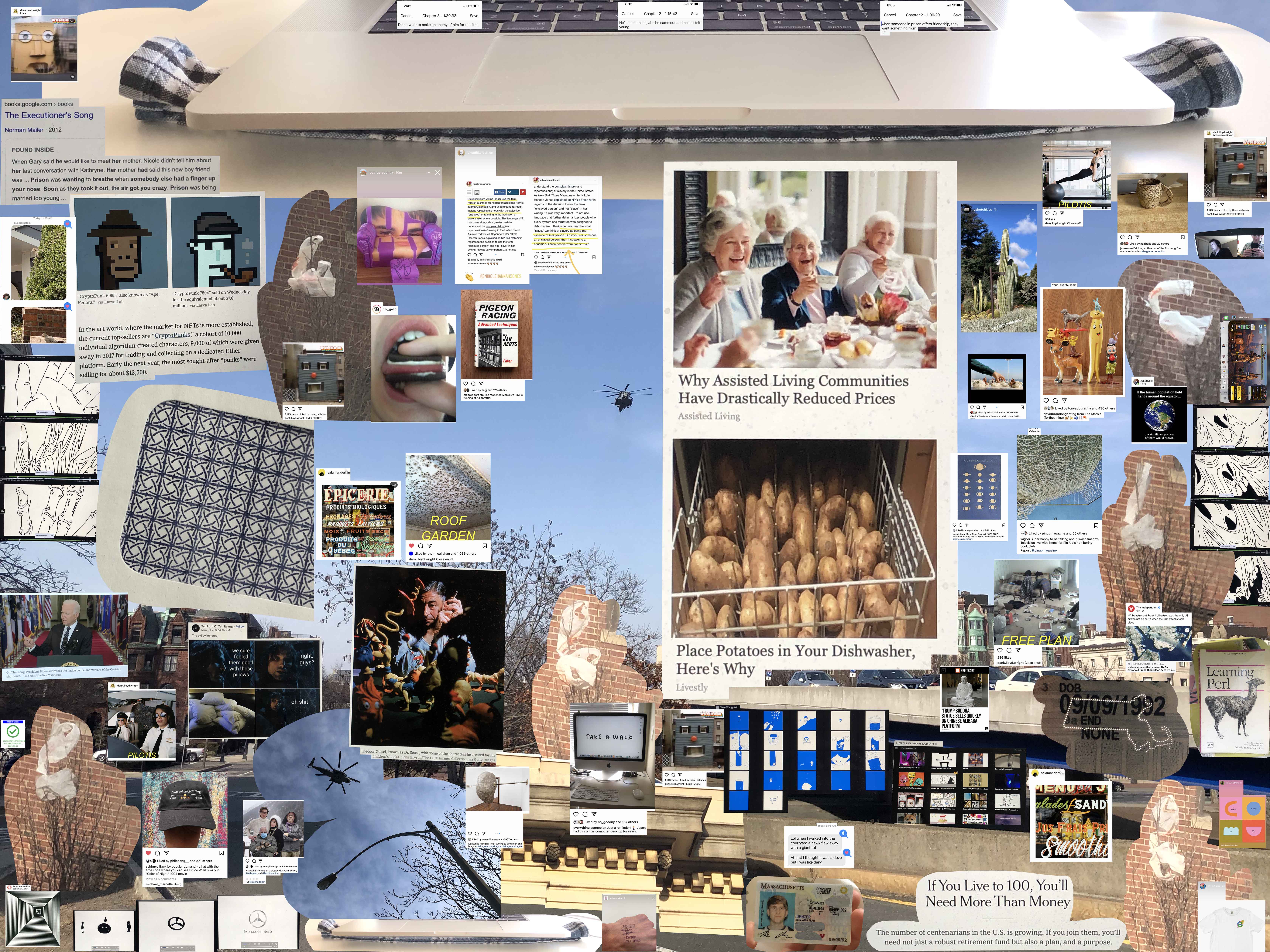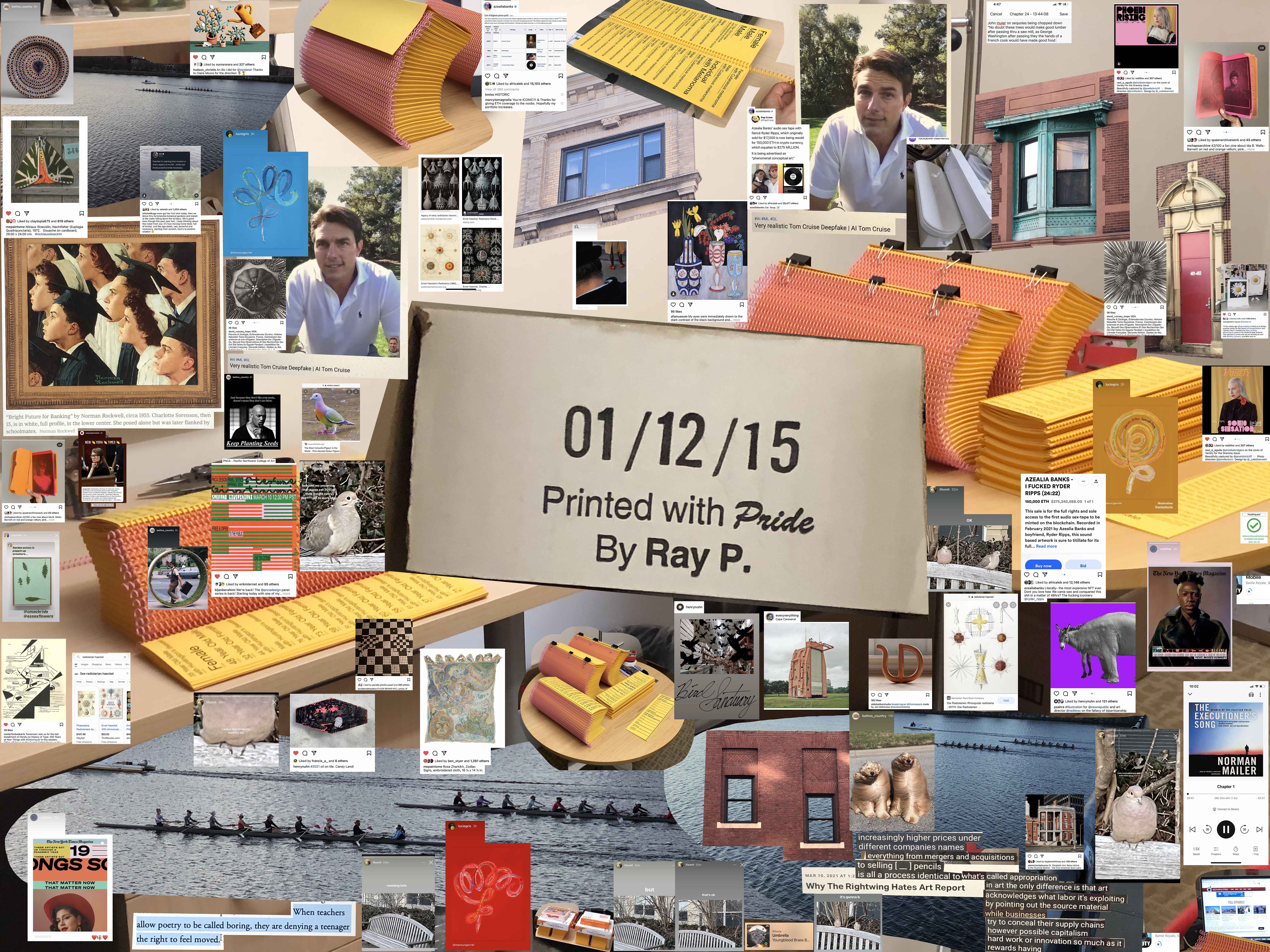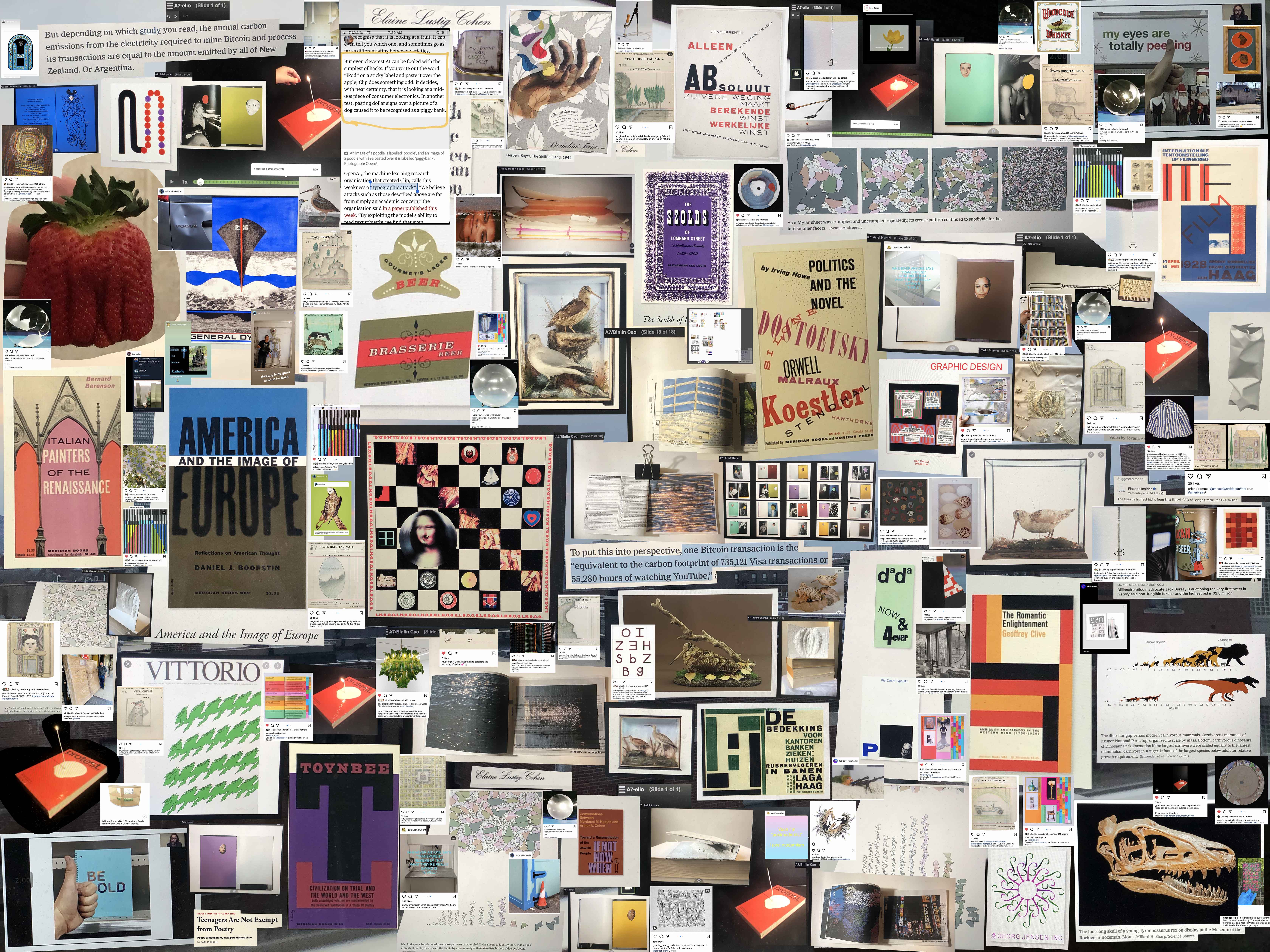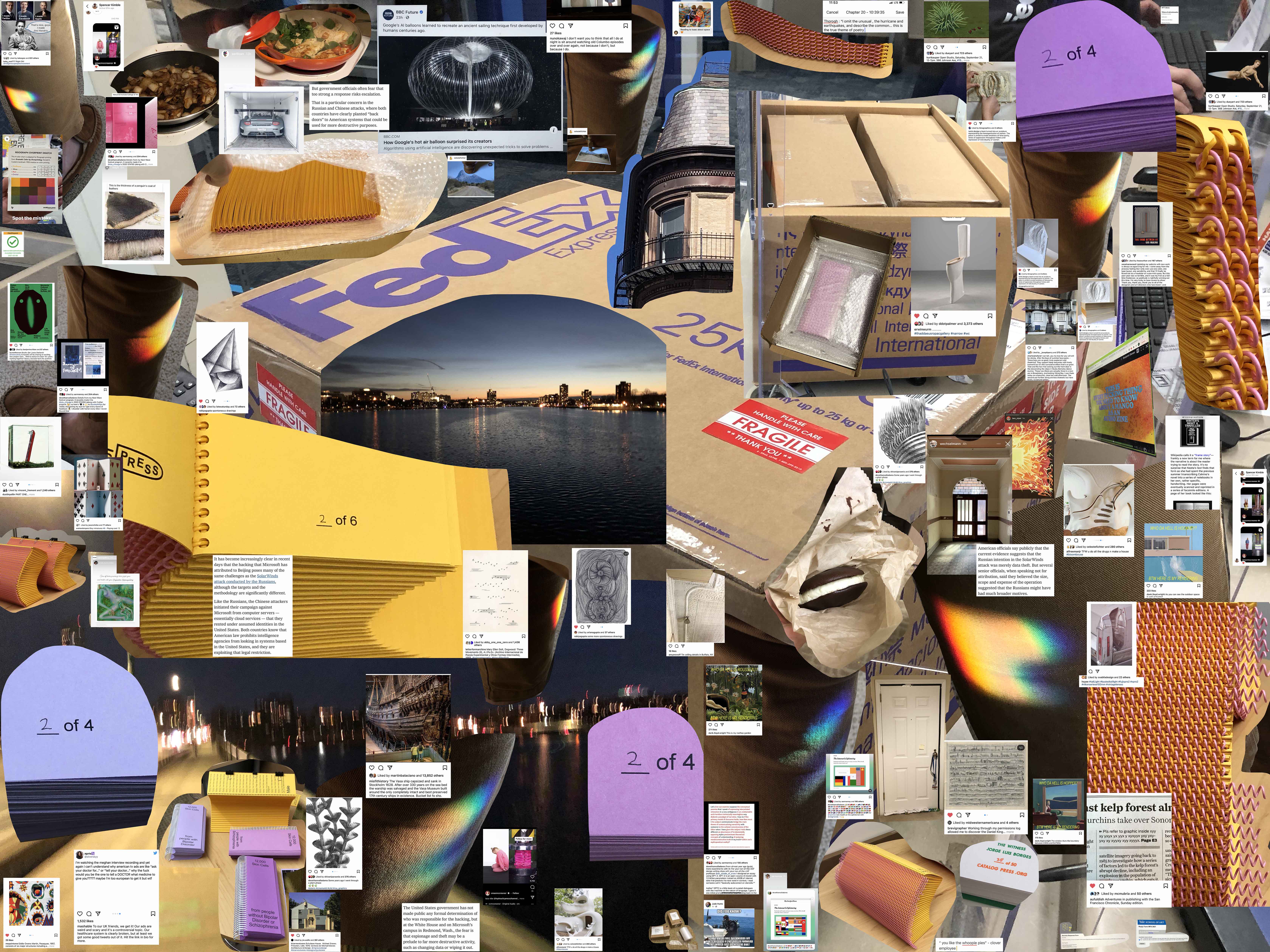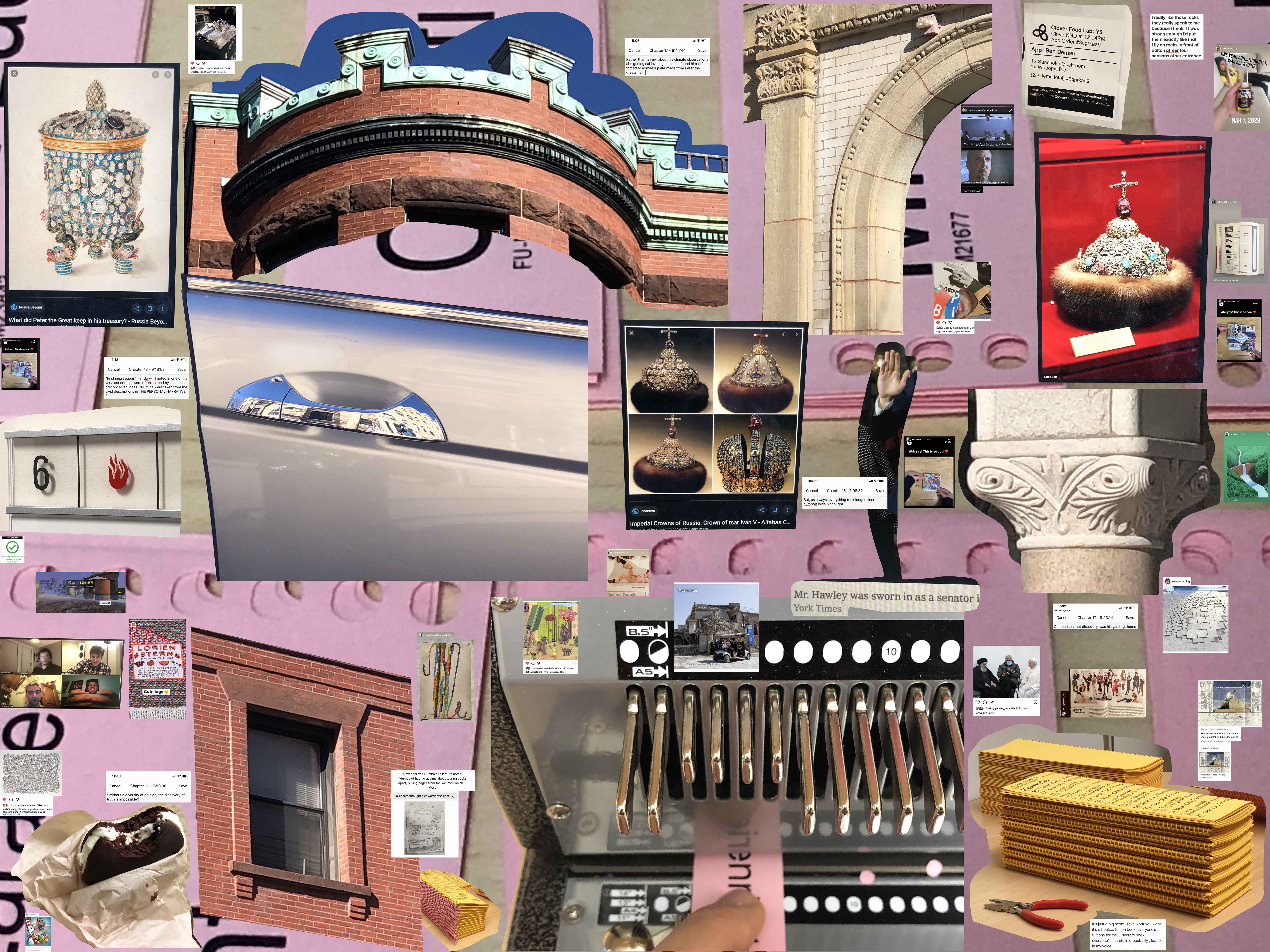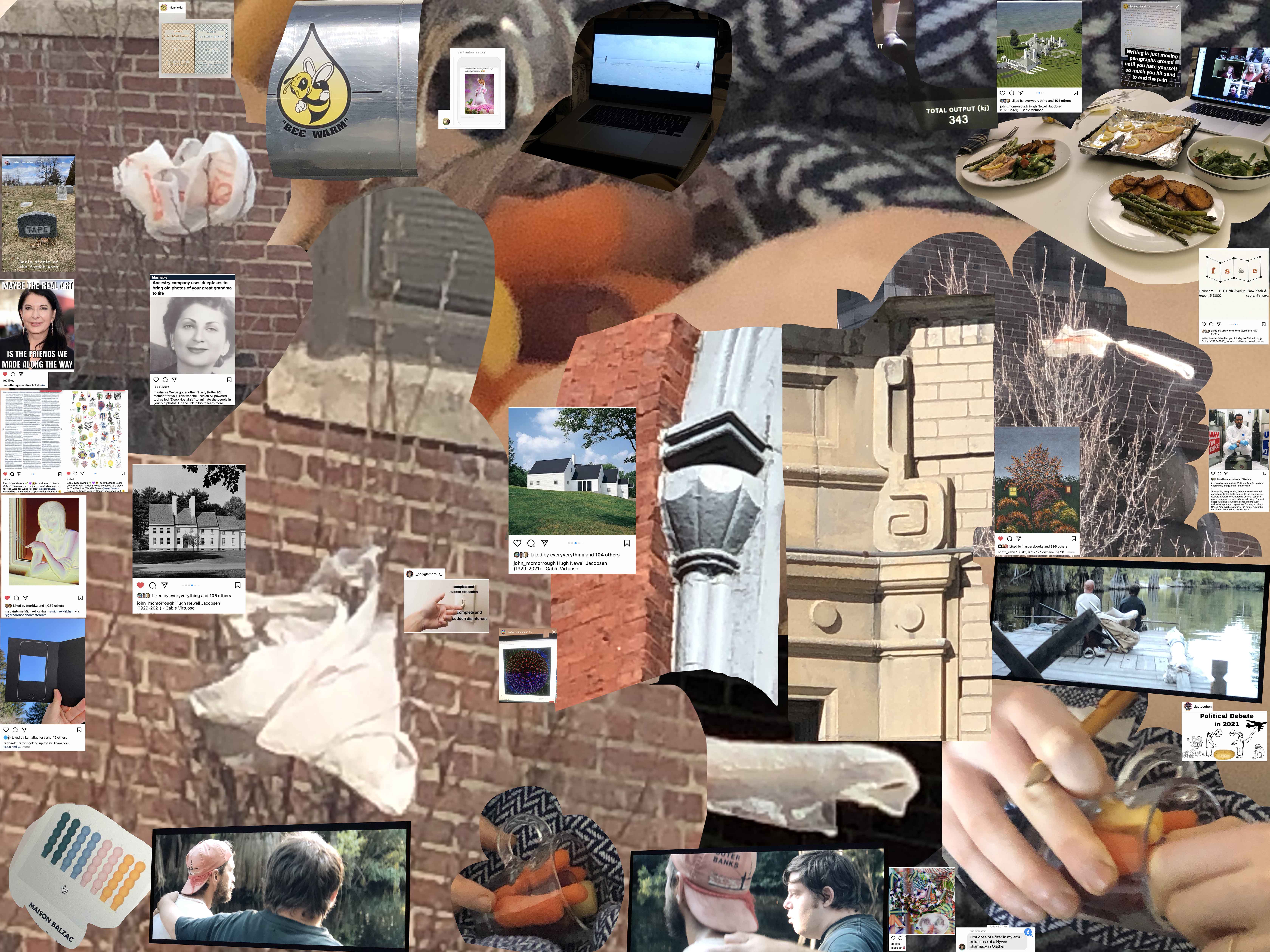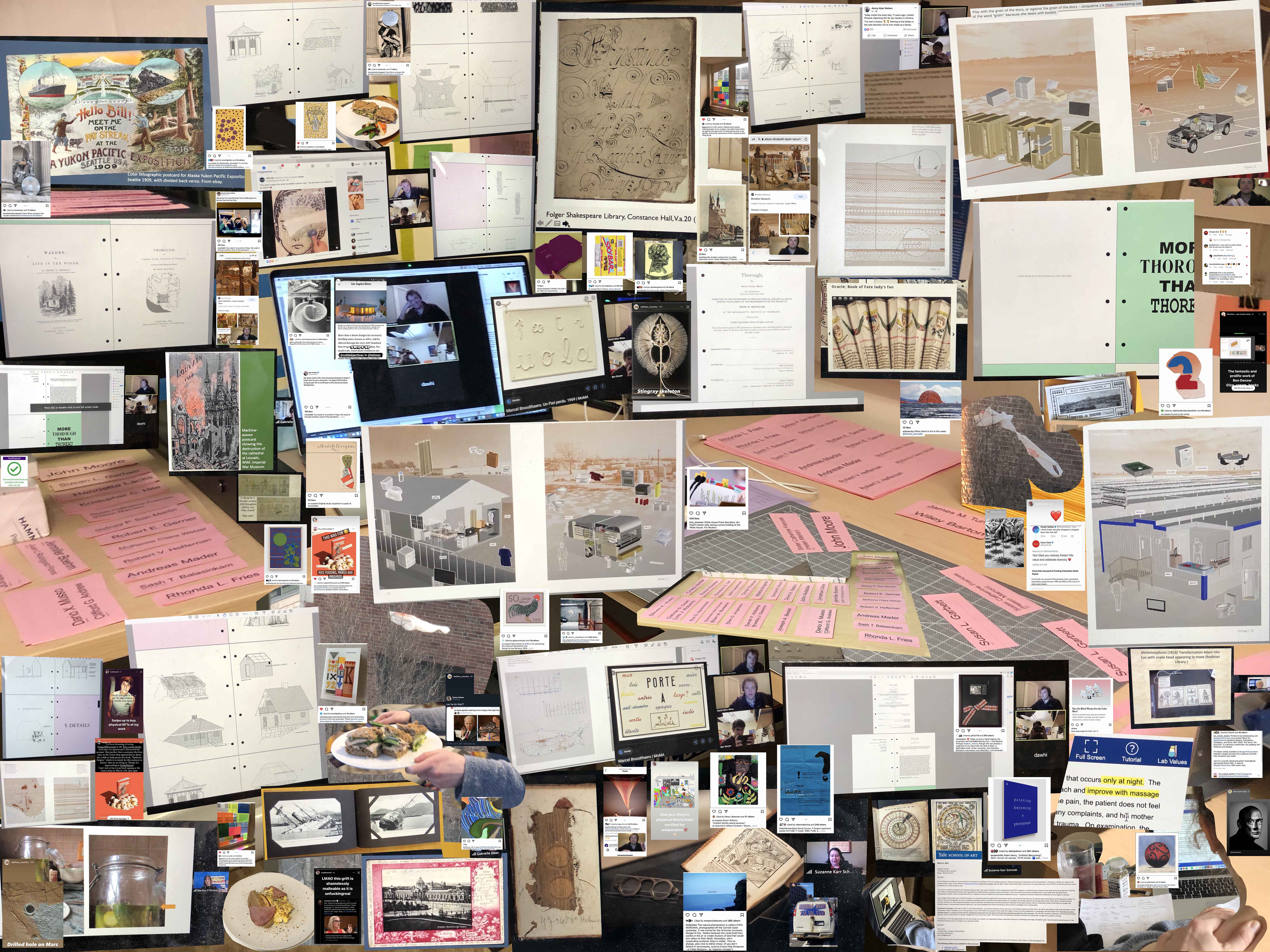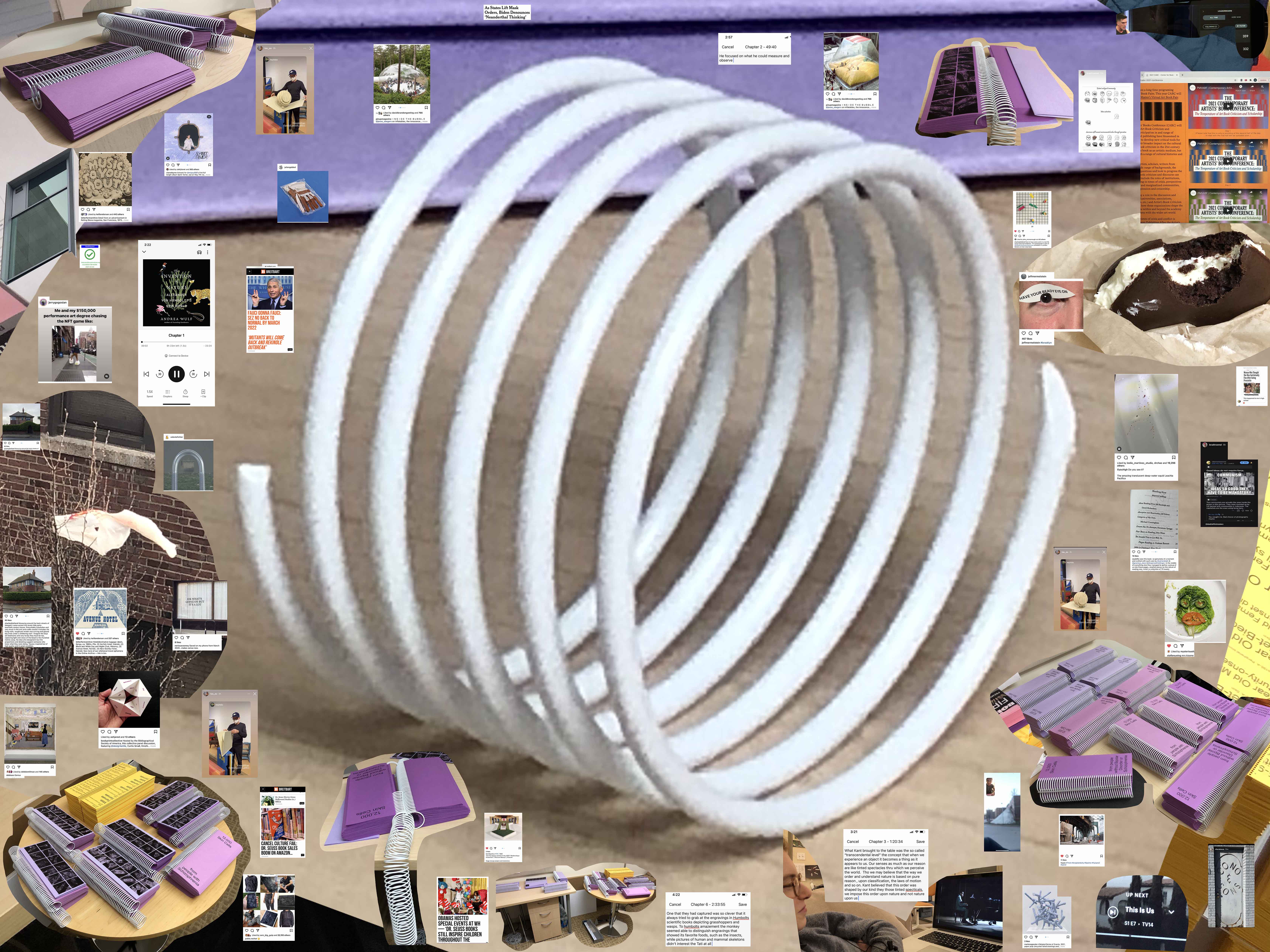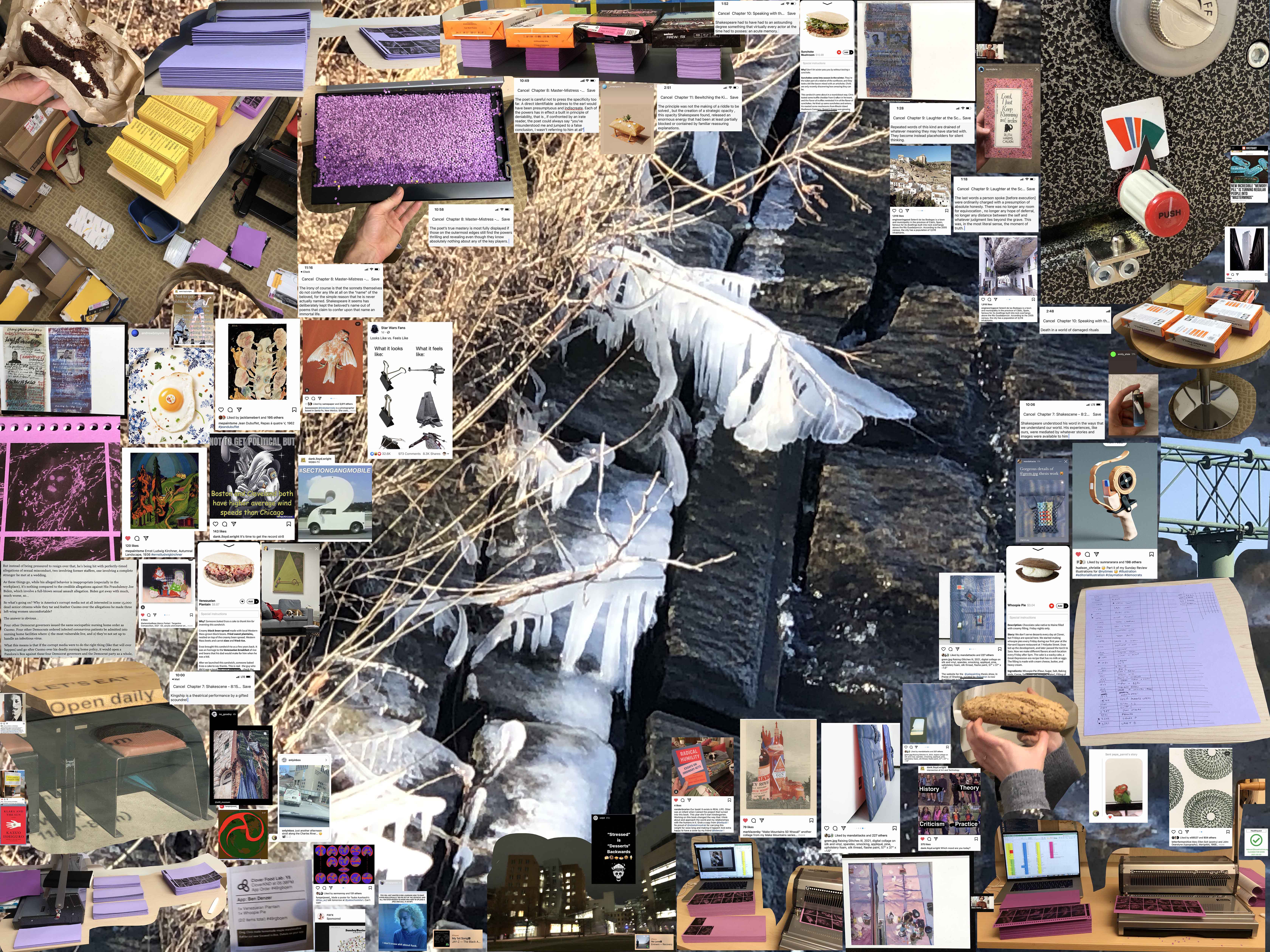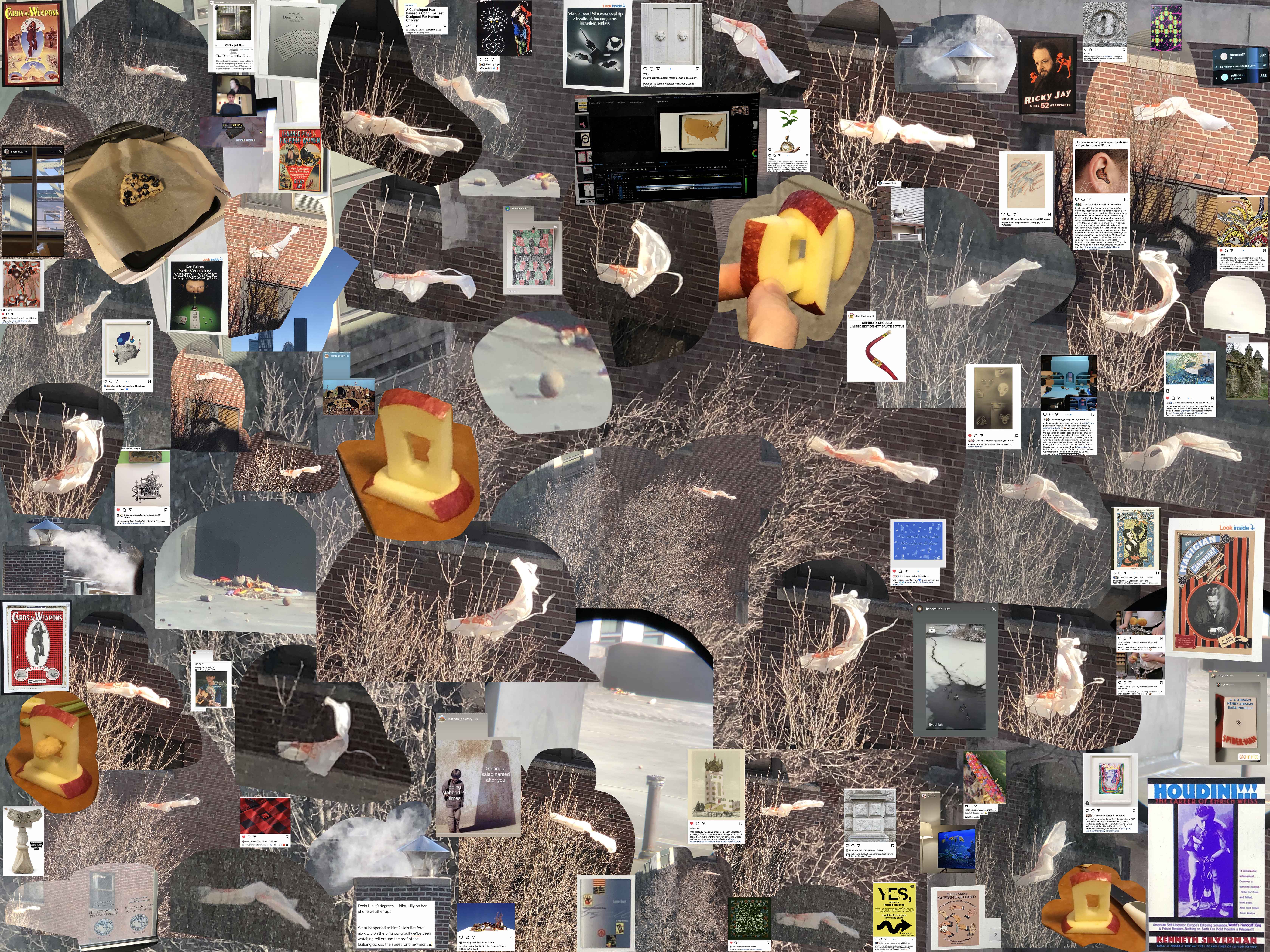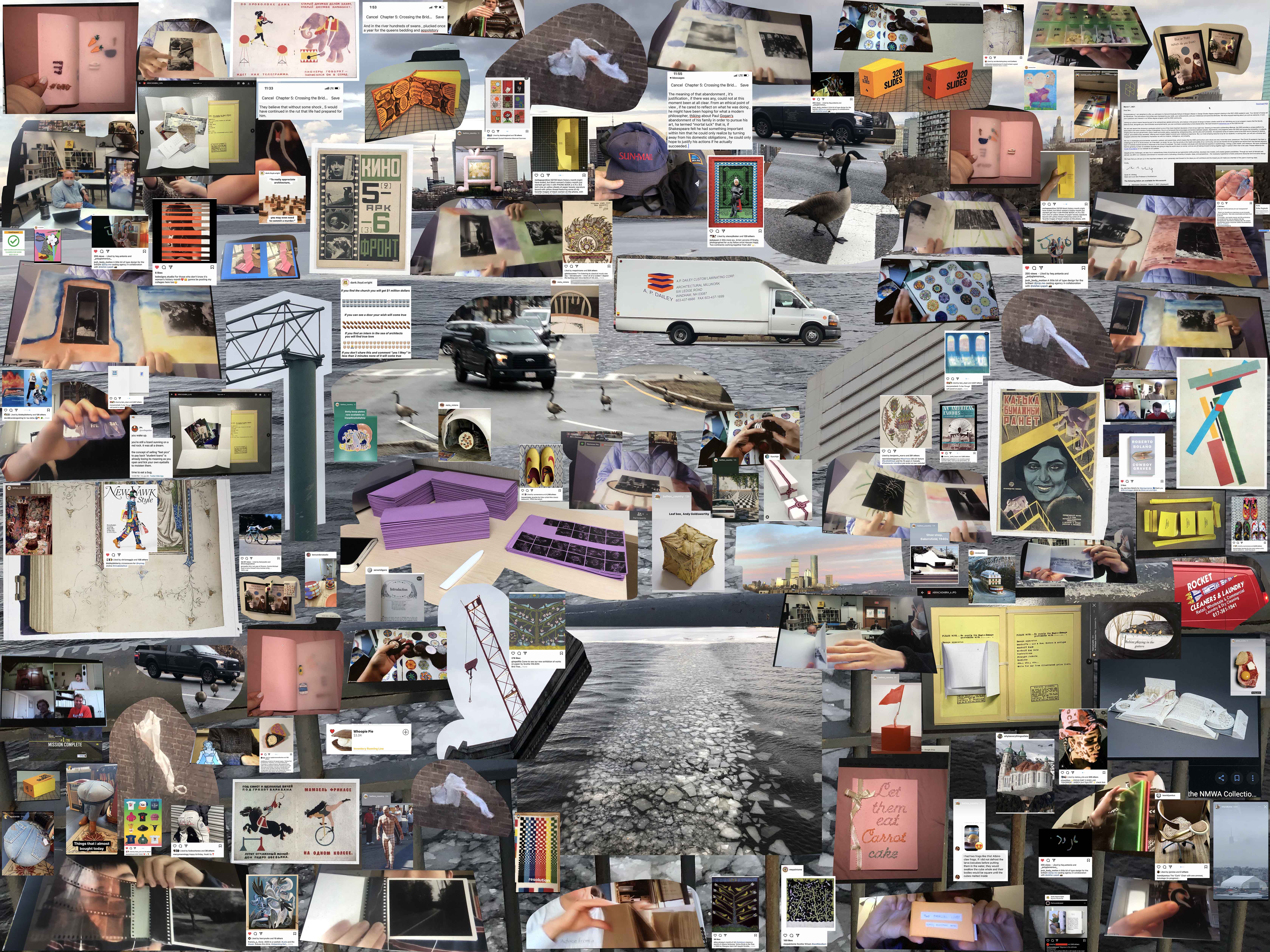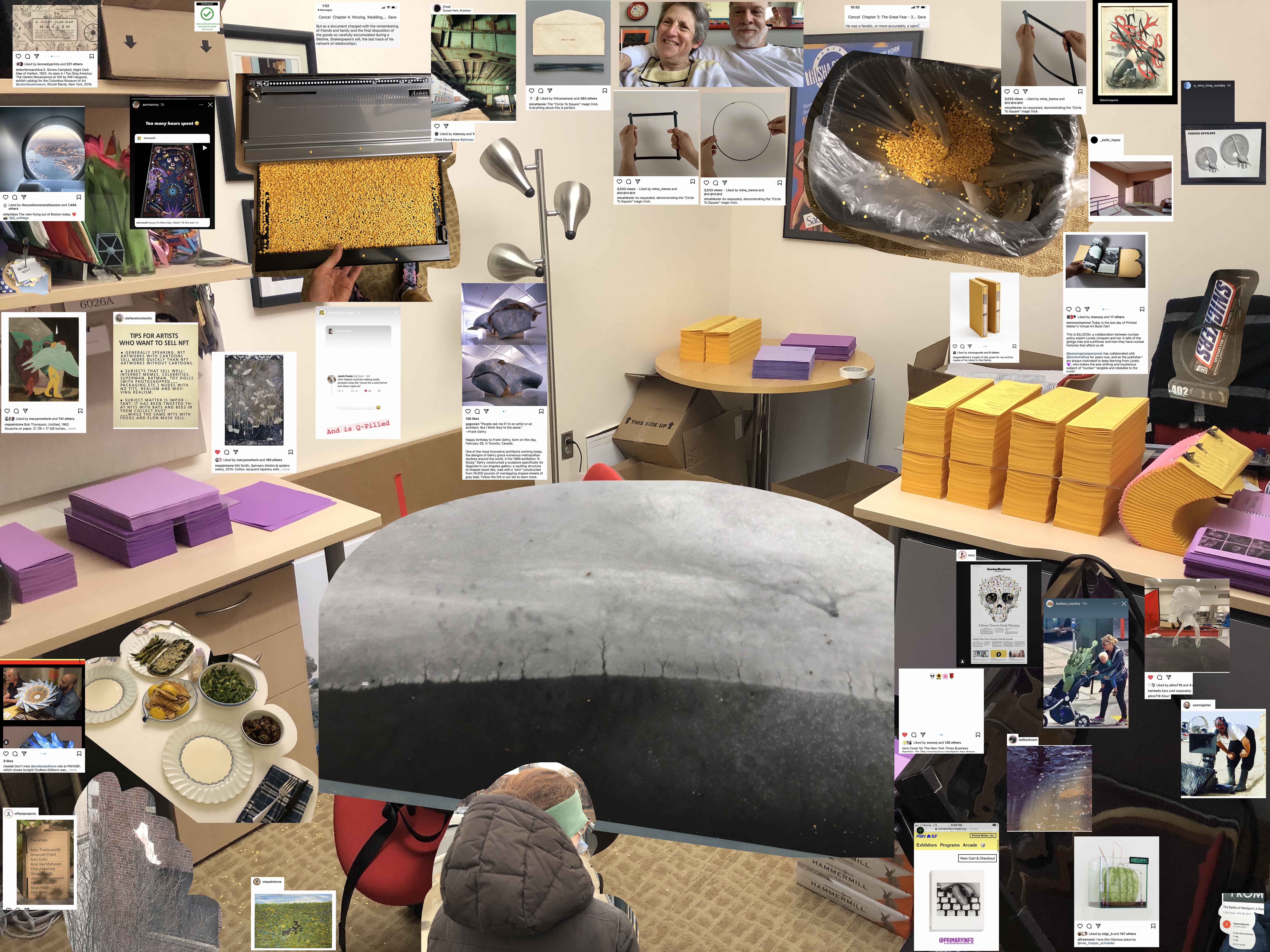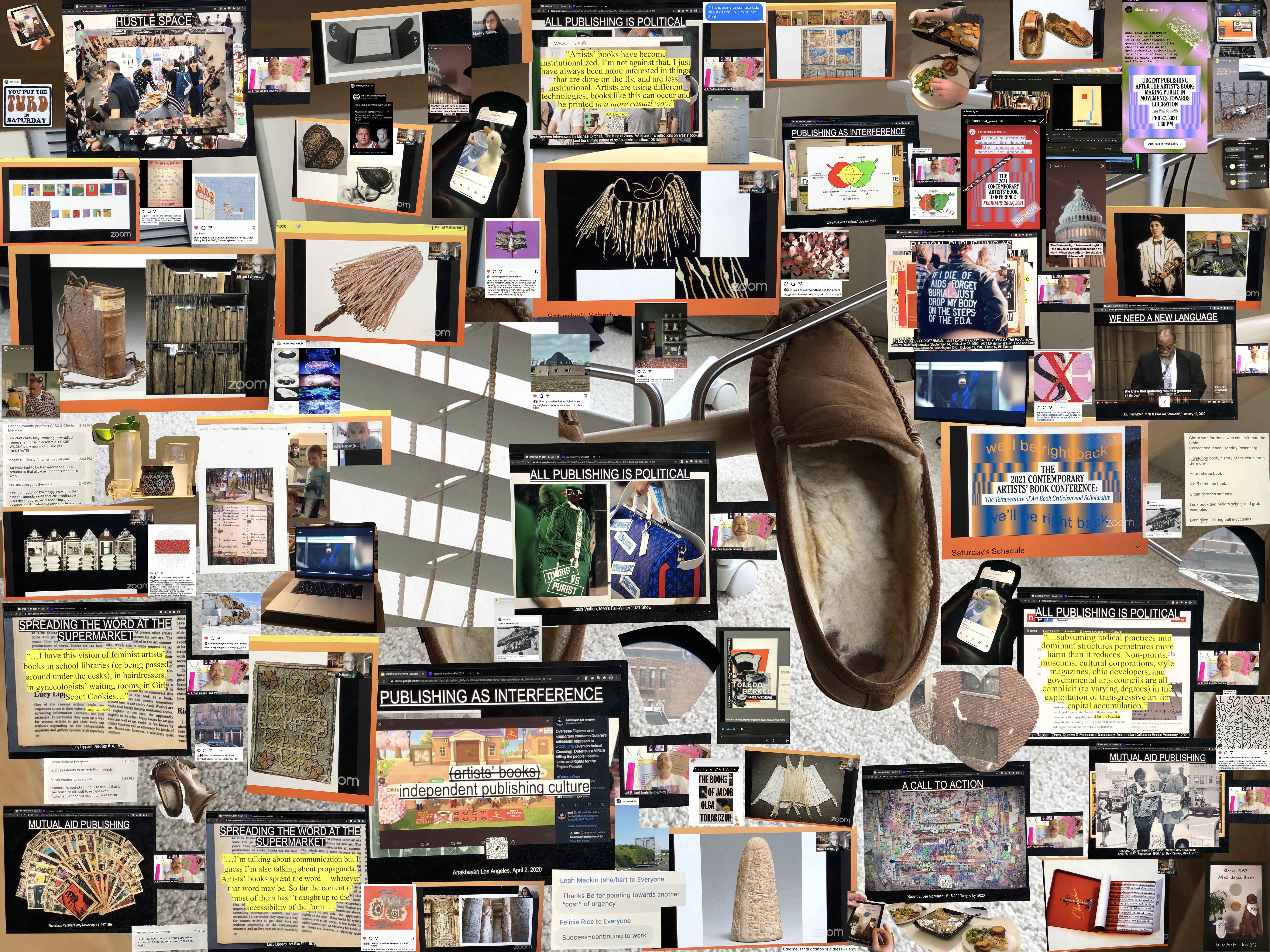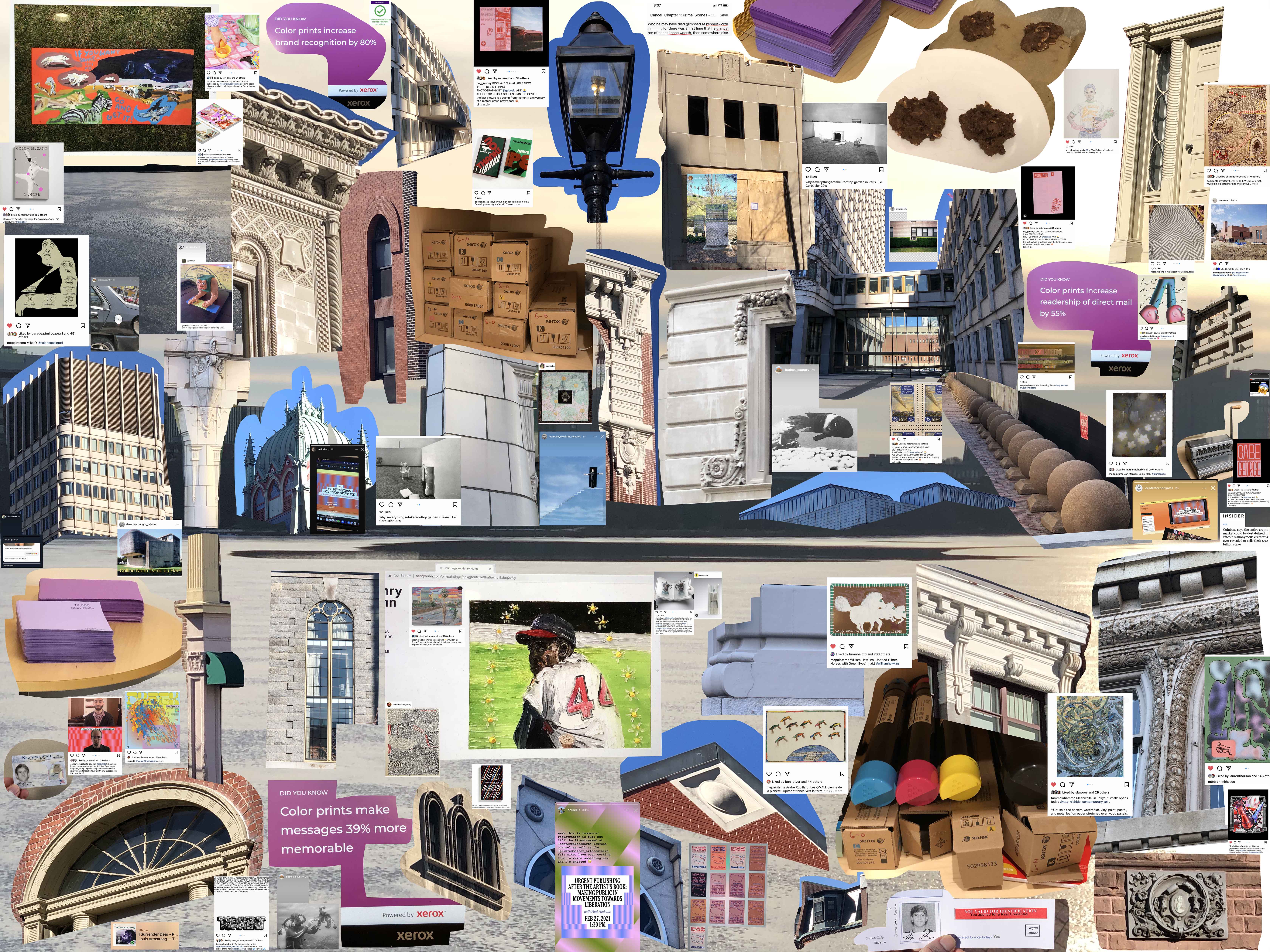Wednesday, March 17, 2021
All matter is decaying and prone to deteriorating, but I think that's what's so fascinating about the cheese book, is that it underscores that and makes the problem much more immediate.
— Julie, "Opening the Interactive Book," NYU*
Tuesday, March 16, 2021
Dennis had had this concept for years that the media was restless and didn't really want to be surfeited with handouts and crap. One honest man with no impediment between his impulses and his tounge could turn the world around.
— Norman Mailer, The Executioner's Song
Monday, March 15, 2021
The donor of this work does not allow photography
— Lily in a text as I was photographing her text
Sunday, March 14, 2021
It’s funny to me that the Detroit Institute of Arts — one of our country’s premier art museums — thanked me for my visit by emailing me a coupon good for $4 off a Buddy’s Pizza
— @mcmubria
Saturday, March 13, 2021
Gilmore had a quality Gibbs could recognize. He accommodated. Gibbs believed he, himself, could always get near somebody—just use the side that was like them. Gilmore did the same.
— Norman Mailer, The Executioner's Song
Friday, March 12, 2021
Pete didn't remember all the things he said in the prayer, or even if he held her hand while he prayed. One was not supposed to remember what was said in prayers. It was sacred at the moment, and not really to be repeated.
— Norman Mailer, The Executioner's Song
Thursday, March 11, 2021
Didn't want to make an enemy of him for too little.
— Norman Mailer, The Executioner's Song
Wednesday, March 10, 2021
No doubt these trees would make good lumber after passing through a sawmill, as George Washington after passing throuh the hands of a French cook would have made good food.
— John Muir via Andrea Wulf, The Invention of Nature: Alexander von Humboldt's New World
Tuesday, March 9, 2021
But even cleverest AI can be fooled with the simplest of hacks. If you write out the word “iPod” on a sticky label and paste it over the apple, Clip does something odd: it decides, with near certainty, that it is looking at a mid-00s piece of consumer electronics. In another test, pasting dollar signs over a picture of a dog caused it to be recognised as a piggy bank. OpenAI, the machine learning research organisation that created Clip, calls this weakness a “typographic attack”. “We believe attacks such as those described above are far from simply an academic concern.”
— Alex Hern, "'Typographic attack': pen and paper fool AI into thinking apple is an iPod," The Guardian via @tau_au
Monday, March 8, 2021
You like the whoopie pies.
— Clover employee
Sunday, March 7, 2021
First impressions, he [Darwin] noted in one of his very last entries, were often shaped by preconceived ideas. "All mine were taken from the vivid descriptions in the Personal Narrative."
— Andrea Wulf, The Invention of Nature: Alexander von Humboldt's New World
Saturday, March 6, 2021
Ancestry company uses deepfakes to bring old photos of your great grandma to life
— Mashable headline
Friday, March 5, 2021
It's a thesis, it's 8.5 x 11.
— paraphrase of David trying to remember something Dalma said that Spyros said on how it's best to stick to format conventions
Thursday, March 4, 2021
One that they had captured was so clever that it tried to grab at the engravings in Humboldt's scientific books depicting grasshoppers and wasps. To Humboldt's amaement the monkey seemed able to distinguish engravings that showed its favorite foods – such as the insects – while the pictures of human and mammal skeletons didn't interest the titi at all.
— Andrea Wulf, The Invention of Nature: Alexander von Humboldt's New World
Wednesday, March 3, 2021
The poet's true mastery is most fully displayed if those on the outermost edges still find the poems thrilling and revealing, even though they know absolutely nothing about any of the key players.
— Stephen Greenblatt, Will in the World: How Shakespeare Became Shakespeare
Tuesday, March 2, 2021
What happened to him!? He's feral now.
— Lily on the ping-pong ball we've been watching roll around the roof of the building across the street for many months
Monday, March 1, 2021
And in the river hundreds of swans, plucked once a year for the queen's bedding and upholstery.
— Stephen Greenblatt, Will in the World: How Shakespeare Became Shakespeare
Sunday, February 28, 2021
But as a document charged with the remembering of friends and family in the final disposition of the goods so carefully accumulated during a lifetime, Shakespeare's will—the last trace of his network of relationships.
— Stephen Greenblatt, Will in the World: How Shakespeare Became Shakespeare
Saturday, February 27, 2021
In relation to this economic reality.
— Paul Soulellis, "Urgent Publishing After the Artist Book: Making Public in Movements Towards Liberation," CABC
Friday, February 26, 2021
For there was a first time that he glimpsed her—if not at Kenilworth, then somewhere else.
— Stephen Greenblatt, Will in the World: How Shakespeare Became Shakespeare
